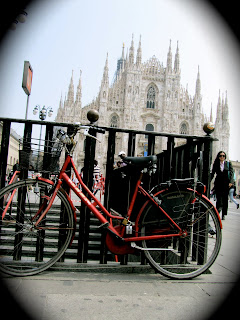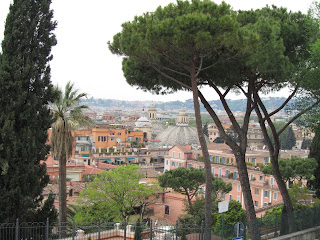Learning a language is humbling. Some days are good, but on others, it feels as though my language ability has been reduced to that of a four-year-old.
Teaching a language is equally humbling. It becomes obvious that any skill with language that I might claim is largely due to the fact that I'm a native speaker. When I have to sit down and think about what I say so that my students can understand, breaking it down into small bites, I realize how unconscious our usage is (and how convoluted English can be). Even with great effort, I've created more than a few failures.
What's so hard about it, you ask? Yes, yes good question, I'm glad you asked. Here are some major points to bear in mind:
- Speak slowly, but naturally. We can't distinguish words when they're rushed together, even if they are familiar vocabulary for us. Plus, we're processing a million things a minute - retrieving vocabulary, categorizing verb tenses, re-directing direct objects, ordering events and information, capturing the overall main idea, and on top of it all, wondering how in the world we're going to respond... so give us time.
- We're not deaf, so please don't yell. It's embarrassing, and we're already self-conscious enough. However, if you don't speak loudly enough for me to hear you with ease, I won't even try to understand, but you will be none the wiser. We're very good at noncommittal body language responses, you see.
- It is never, EVER funny when you try to dance circles around us with your words, no matter how much you enjoy it. We will shut down and stare at you blankly, and the joke will be lost, and you will look like a big fat arrogant gilipolla.
- Your goal is to facilitate communication. Think of it as marking a route on a map. Highlight the most important places, and we'll eventually get there, even if it is by a less direct route. What this means: we rely heavily on inference, so especially enunciate question words and the subject; provide a definition (sandwiched within the sentence) after a less common word; and don't start your stories (or sentences) in the middle of the action and then backtrack. Beginning-middle-end; subject-verb-object... at least at first.
- Slurred slang is hard to decipher, much less understand. For example, gonna, wanna, 'sta luo.
- Be especially conscious of your time-order words. Repeat and rephrase them to make sure we follow what you're saying. And be sure to clarify when you're listening to us... verb tenses are one of the worst parts of learning languages.
- Multiple pronouns and indirect objects are confusing, especially if they are of the same gender ('he said he didn't'... or 'Mark said Antonio didn't'...) or group size (they and they). If you change the person/subject of your story, make sure we catch it.
- Don't assume we understood the first time, regardless of the fact that we're nodding. Summarize every now and then, and we'll both be happier.
- Eyebrows knitted together is a sure sign of problems.
- When you're listening to us talk, be a creative listener as you try to understand. Remember, we haven't developed the rigid set of connotations you have, and we might cross my words a bit. Think poetry :)
- When we consistently make the same mistake, please, please, please correct it. Several times. It won't hurt our pride; we'll be grateful. I promise. And also, when you respond, it's helpful if you restate part of what I said correctly, modeling proper usage for us. We notice and learn.
- Be curious about and interested in our lives. Asking us questions about ourselves affirms our value and tells us that we're not defined by our lack of language skills.
- If you need somewhere to start, consider: family, food, entertainment, school and education, celebrities, music, significant others, other travels, best experiences so far, biggest surprises so far, native scenery, religion, politics, holidays and festivals, sports, history, cultural identity, cultural differences, time differences, future plans, legends and folk tales and why they came to be ...to name a few.
- Please note that you may have to provide us with some basic vocabulary if you ask a very technical, specific question.
- Be careful when asking about homesickness. It may put us in an awkward situation, depending on our experiences so far.
- Finally - and this is possibly the most important of all - If you use an idiom while giving me important information (directions, etc), I will personally see to it that your children and grandchildren learn every curse word in three languages. Thank you, and have a nice day.

























